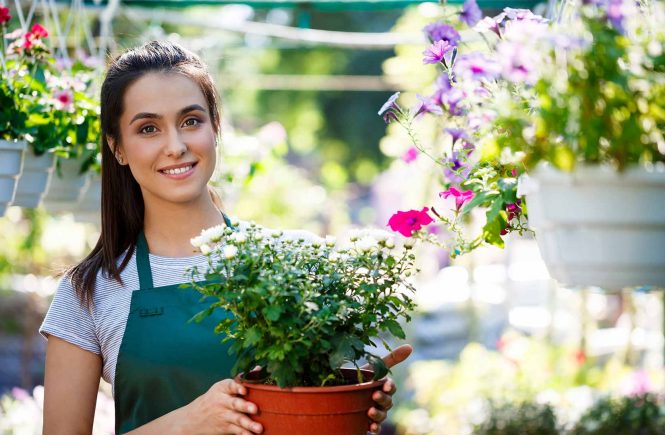After the scorching summer heat, the first spell of Monsoon relives and rejuvenates us. The green companions (plants) also become greener and grow faster during this season.
Thus, it is the best time to add new plants to your home garden on the terrace, balcony, backyard, or kitchen! However, it is also the time you need to take special care of your garden so that they grow healthy and offers the best blooms and produces!
Here are some home garden tips for the Monsoon that you will find useful!
1. Prevent water stagnation
Overwatering is a common problem that kills plants, especially during Monsoon. While you can protect them from excessive rainwater, the poor drainage system is often the culprit behind dying plants!
Thus, you need to ensure that your planters’ drainage holes are open and can pass water correctly. You can check it by taking a sharp stick and poking it into the drainage hole.
The stagnant water in the pot also rots the plants and attracts fungal infection easily. Besides, the stagnant water is a breeding ground for mosquitoes that cause Malaria, Dengue, etc.
2. Remove weeds from the plant surroundings.
Proper weed management is also an essential home garden tip for Monsoon that you must take seriously! The weeds grow rapidly in the garden during the rainy season, soaking away the necessary nutrients your plants require to survive.
Thus, whenever you see some unnecessary growth in your garden, pull them out and dress the soil to make them lump-free and free from any weeds! If you have grass in your garden, trim them short for a cleaner look!
3. Prune and deadhead regularly.
Monsoon is the best time for repotting and pruning! Trimming and pruning the plants during Monsson is required to ensure healthy growth. Similarly, if you have been planning for a long time to grow a new plant from the original ones for a long time, it is that time!
After some days, you will see new shoots and leaves without much effort!
4. Switch to natural fertilisers
The plants open their pores during Monsoon, helping the fertiliser to absorb better. However, the soils tend to wash away along with the fertiliser due to constant rain.
Thus, you need to use something that is not harmful to the environment. For instance, you can opt for natural fertilisers such as cow dung, vermicompost and home compost for your plants. They are eco-friendly and great for plants.
5. Expose the plants to sunlight
Monsson means gloomy and grey sky and hardly any sunlight. While you may enjoy the weather, the plants do not. They need proper sunlight at least 2 to 3 days a week. Some plants like succulents, cacti, culinary herbs, hibiscus, etc., need a high-lighting environment to survive and grow.
Thus, carry these plants to sunlight often to keep them healthy. Alternatively, you can also arrange the right artificial lighting to keep them alive.
Do you have special home garden tips for Monsoon? Comment below!




